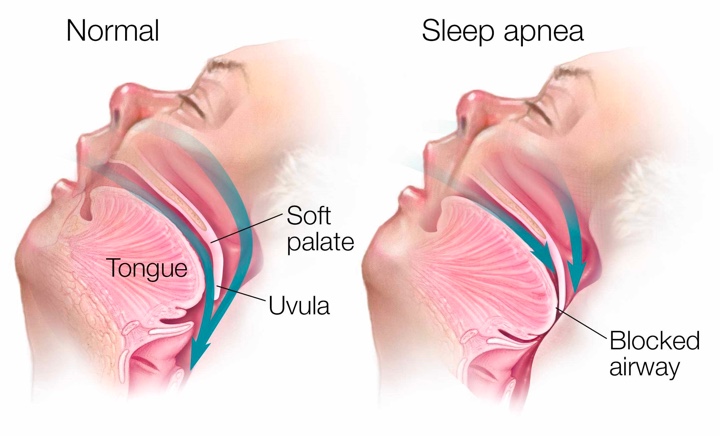If you have symptoms of sleep apnea, you should make sure to talk with a doctor. Without understanding the root causes of your sleep apnea, it is difficult to treat. When necessary, the doctor can recommend an overnight sleep study to analyze your sleep, including your breathing.
If a person is diagnosed with OSA or CSA, treatment is often effective at improving sleep and reducing the risks of long-term health complications. A doctor familiar with a patient’s situation is in the best position to address potential benefits and risks of treatments and make specific recommendations.
Lifestyle changes, such as losing weight, reducing the use of sedatives, and sleeping on your side, can resolve some cases of OSA. Another common treatment is the nightly use of a continuous positive airway pressure (CPAP) or bi-level positive airway pressure (BiPAP) machine. These devices push air through a mask and into the airway to keep it open during sleep.
Some types of mouthpieces that hold the jaw or tongue in a specific position are an option for people with certain anatomical features that trigger mild OSA. In addition, though usually not the first treatment option, surgery to remove tissue and expand the airway can be considered. Medications may be prescribed to help with daytime sleepiness in people with this symptom.
Treatment for CSA typically centers on managing the underlying condition, such as a brain infection, heart failure, or altitude adjustment, that causes disordered breathing. CPAP or BiPAP machines or supplemental oxygen may help some patients as well.




















